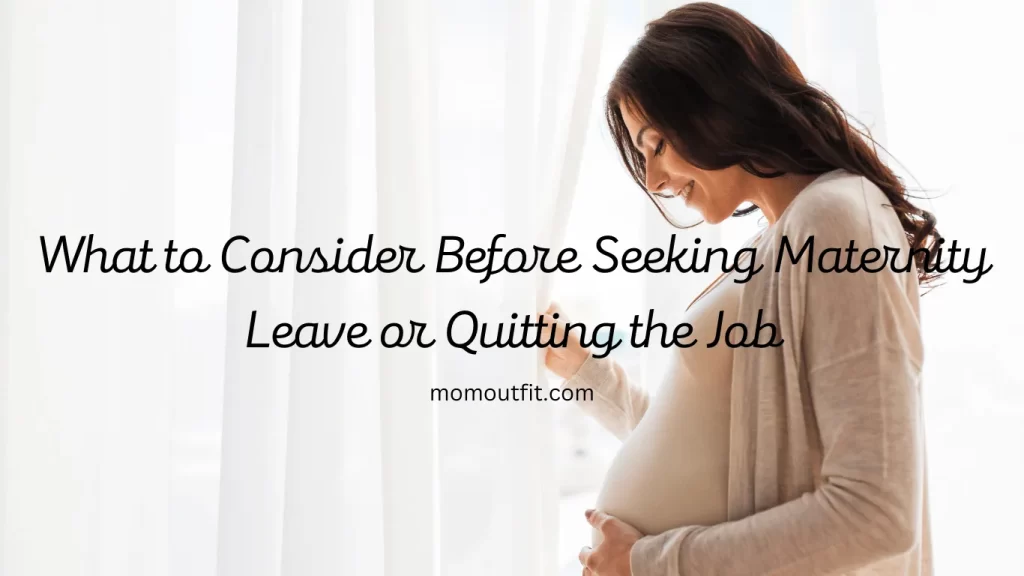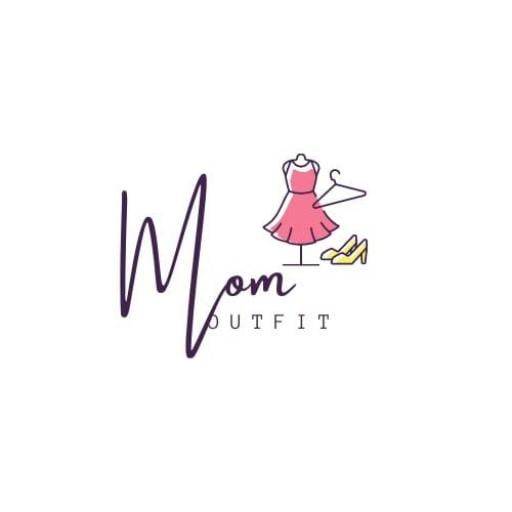There are many decisions to make when you find out you are pregnant. One of the first decisions is whether or not to continue working. Likewise, you may consider applying for a new job while pregnant.
For some women, this is an easy-going decision. They may not feel well or want to stay home with their new baby. Other women may want to or need to continue working. It can be difficult, especially if you are pregnant and looking for a new job.
I will share everything relevant to new job expectations during pregnancy days in this post.
5 Strong Reasons Why You Should Apply for a Job while Pregnant
One of the biggest questions is whether or not you should keep working. If you’re considering applying for a new job while pregnant, here are five reasons you should go for it!
- You’re just as qualified as anyone else.
Just because you’re pregnant doesn’t mean you’re any less qualified for the job. In fact, employers are often impressed by women who can balance work and pregnancy.

- It can be good for your career.
While pregnant, taking on a new job can be a great way to further your career. It shows that you are devoted to your job and willing to work hard even with other commitments.
- It can help you financially.
Having a baby is expensive! If you can work while pregnant, you’ll be in a much better financial position when your baby arrives.
- It can be good for your spiritual health.
Pregnancy can be a stressful time, both physically and emotionally. Working can help you stay sane during this crazy time!
- You never know what might happen.
You might not get the job, but it’s always worth a shot. You never know what might happen unless you try.
So, if you’re pregnant and considering applying for a new job, go for it! You might be stunned at how well it goes.
Things to Consider for Applying for a New Job While Being Pregnant
Several stuffs to consider when applying for a new job while pregnant. The first is your health. For a healthy pregnancy, you may be able to continue working without any problems. However, if you are having complications, it may be best to wait until after the baby is born to look for a new job.
The second thing to consider is your job search. If you are only a few months pregnant, you may not want to mention your pregnancy in your job search. However, if you are moving forward with your pregnancy, you may want to be upfront about it. This way, you can find a job that is a good fit for your current situation.
The third thing to consider is your job interview. If pregnant and interviewing for a new job, you may want to dress conservatively and downplay your pregnancy. It can help you be seen as a professional and not as a pregnant woman looking for a job.

Applying for a new job while pregnant can be a difficult decision. There are a few things to consider, such as your health, job search, and job interview.
If you are having a healthy pregnancy and are comfortable with your job search and interview, applying for a new pregnant job may be a good option.
How to Be Honest with Your Employer Before You Get Pregnant?
It’s an exciting time when you’re expecting a new baby, but if you’re planning to continue working during your pregnancy, you’ll need to have a conversation with your employer about your plans.
Knowing how to broach the subject can be tricky, but being honest with your employer from the start is essential.
Here are personal suggestions on how to tell your employer you’re pregnant:
- Talk to your supervisor or human resources department first.
You’ll want to discuss this with your supervisor or the human resources department before you announce your pregnancy to the whole company. It will give you a chance to talk about your plans and what accommodations you may need during your pregnancy.
- Be honest about your plans.
If you’re unsure whether you want to continue working during your pregnancy or take time off after the baby is born, be honest with your employer. It’s okay not to have everything figured out yet, but it’s essential to communicate your plans as best you can.
- Ask about leave policies.
Find your company’s leave policy if you want some time after breeding a baby. It will help you plan financially and know what to expect regarding your job when you return.
- Be prepared to answer questions.
Your employer may have questions about your pregnancy and how it will impact your work. Be prepared to answer these honestly and openly.
- Thank your employer for their understanding.
Your employer may need some time to adjust to the news of your pregnancy, so thank them in advance for their understanding.
What are the Benefits and Negatives of Keeping Your Pregnancy a Secret from Your Future Employer?
So, you’re pregnant and looking for a new job. But should you tell your potential employer about your pregnancy?
There are advantages and disadvantages to disclosing and keeping your pregnancy a secret from your future employer. Here are some things to consider:
Pros of Disclosing Your Pregnancy:
– You are protected by law from discrimination. The Pregnancy Discrimination Act makes it illegal for employers to discriminate against employees based on pregnancy, childbirth, or related medical conditions.
– You may need accommodations. If you have a medical condition related to your pregnancy, you may need accommodations to perform your job. For example, you may need a larger chair or a different workstation. By disclosing your pregnancy, you can request the accommodations you need.
– Your employer may be more understanding. If you need time for doctor’s appointments or recovery from childbirth, your employer may be more understanding if they know about your pregnancy.
Cons of Disclosing Your Pregnancy:
– Your employer may view you as less competent. Unfortunately, there is a stereotype that pregnant women are less capable and less committed to their work. It may make your employer less likely to promote or give you essential assignments.
– You may be passed over for jobs. Some employers may not want to hire a pregnant woman, fearing she will take time off or need accommodations.
– You may be treated differently by your coworkers. Once your coworkers know you’re pregnant, they may treat you differently. They may assume you’re not interested in working late or taking on extra assignments.
Eventually, whether or not to disclose your pregnancy to your future employer is a personal one.
What Every Employer Needs to Know about Pregnant Workers
In the United States, employers must provide reasonable accommodations for pregnant workers. If your pregnancy affects your ability to do your job, your employer must make changes to help you stay on the job.
For example, your employer must accommodate your needs if you need to take more frequent breaks or have a lighter workload. However, if your pregnancy does not affect your ability to do your job, your employer is not required to make any changes.
If you are expectant and a new job seeker, let your potential employer know about your pregnancy. Through this, they can ensure accommodations from the start.
Applying for a new job while pregnant can be a bit of a juggling act. But with a little preparation, you can find a job that’s a perfect fit for you and your growing family.
The Gender Pay Gap Issue when it Comes to Pregnancy at Work
It’s no secret that the workplace has a gender pay gap. But what happens when you combine pregnancy into a mixture?
According to a recent study, pregnancy costs US employers an estimated $13 billion yearly. And a large segment of that cost is due to the gender pay gap.
Women are often paid less than men for the same work. And when you insert pregnancy into the combination, that pay gap only widens.
According to the study, an employer’s average cost of pregnancy is $17,000. But when you factor in the gender pay gap, that number jumps to $21,000.
So, what can be done to close the gender pay gap in the workplace?
Employers need to be more understanding and accommodating of pregnant employees. Pregnancy is a natural part of life and shouldn’t be treated as a burden by employers.
Additionally, the government needs to do more to support pregnant women in the workforce. The US is the only developed nation that doesn’t offer paid maternity leave. It needs to change.
Paid maternity leave would not only help close the gender pay gap, but it would also help reduce the costs associated with pregnancy for employers.
If you’re pregnant and looking for a new job, don’t let the fear of discrimination stop you from applying. You have the birthright to a fair and equal workplace, regardless of pregnancy status.
When You Should Consider Quitting or Switching Jobs if You’re Preggers & Planning on Working as Soon as Your Leave is Up
It can be tough to obtain the right balance, but if you’re pregnant and looking for new employment, a few things to keep in mind:
- Quitting Your Job While Pregnant
If you’re not fortunate with your current job or feel like it’s not a good fit for your pregnancy, it’s okay to quit.
Before quitting, make sure you have a different job lined up, or at least have a plan for how you’ll support yourself financially. Once you’re no longer employed, you won’t have access to things like health insurance, so it’s essential to be prepared.
- Switching Jobs While Pregnant
If you’re delighted with your current job but are worried about how your pregnancy will be accommodated, it might be worth considering switching jobs.
Look for jobs that are understanding and accommodating of pregnant women. Many companies offer flexible work hours, paid leave, and on-site childcare.
- Staying at Your Current Job
Of course, you might decide that staying at your current job is best for you. If you’re lucky with your current place and feel like your pregnancy will be adjusted, there’s no need to make a change.
Talk to your employer about your pregnancy and what accommodations you’ll need. Make sure you’re on the same page about things like leave, flexible work hours, and returning to work after your baby is born.
What to Consider Before Seeking Maternity Leave or Quitting the Job
So, you’re pregnant and thinking about your next steps. Maybe you’re considering taking maternity leave or quitting your job altogether. A few issues to think about before you make any decisions are:
- Talk to your doctor.
Your doctor is an excellent resource for advice on how your pregnancy progresses and what restrictions you should follow. They can also offer guidance on how your job may affect your health.

- Talk to your boss or HR.
If you’re thinking about taking maternity leave, the first thing you should do is talk to your boss or HR department. They may have some policies you’re unaware of, and it’s better to get all the information before making any decisions.
- Consider your financial situation.
Before you quit your job, think about your financial situation. Will you be able to afford to live on one income? Do you have savings that you can fall back on? If not, you may want to reconsider quitting your job.
- Think about your career goals.
It’s crucial to think about your long-term career goals. Do you plan on a return to work after your baby is born? If so, you may want to think about ways to keep your job while you’re on leave, such as working from home or taking a leave of absence.
- Consider your personal situation.
Every situation is different, so you must consider your circumstances before making any decisions. For example, if you have a speculative pregnancy, you may want to consider taking leave sooner rather than later.
- Talk to other moms.
If you’re skeptical about what to do, talk to other moms who have been in your situation. They can offer advice and support, and it’s always helpful to get a second opinion.
- Get advice from trusted sources.
Talk to your partner, family, and friends to get their opinion on whether or not quitting your job during pregnancy is the right decision for you.
Preparing Your Job Search
As you enter your third trimester and the finish line of your pregnancy is in sight, you might be thinking about returning to work. Maybe you’re ready to jump back into the professional world after some time off, or you’re planning your next career move.
Whatever your situation, you might wonder how to best prepare for a job search while pregnant.
- Get your paperwork in order
Before applying for jobs, make sure you have all of your paperwork in order. It includes your resume, cover letter, references, and other necessary documents.
For a job search from scratch, you might want to consider working with an expert resume writer to help craft a document to impress potential employers.
- Consider your timing
When timing your job search, there are a few things to remember. First, ensure that you have a solid plan in place for childcare. It might mean lining up a babysitter or nanny or making arrangements to work around your child’s nap schedule.
Second, you’ll want to think about when you want to start your new job. If you’re hoping to return to work shortly after your baby is born, you’ll need to start searching job a few months before your due date. It will give you time to land an interview and, hopefully, a job offer.
If you’re not rushing to return to work, you might want to wait until your baby is a bit older. It will give you time to bond with your child and settle into your new parent role.
- Be upfront about your pregnancy
After starting to apply for jobs, you’ll need to decide whether or not to disclose your pregnancy to potential employers. While there is no legal agreement to do so, it’s generally a good idea to be upfront about your pregnancy during the interview process.
If you’re comfortable doing so, you can mention what you’re expecting when the topic of your personal life comes up. If you’re undecided about how to broach the subject, you can always wait for the interviewer for any queries.
- Highlight your skills and experience
While pregnant, it’s essential to focus on the skills and experience that make you a strong candidate for the job you’re applying for. It may include your ability to work independently, your experience with customer service, or your ability to multitask.
If you’re returning to work after pregnancy, you can highlight the skills you’ve acquired during your time off, such as time management, organization, and flexibility.
- Update your resume
Once you’ve started your job search, updating your resume is next. Be sure to include any relevant experience, skills, and education, as well as any special accommodations you may need (for example, if you’re pregnant and need to take frequent breaks).
- Include Cover Letter
Finally, include a cover letter when ready to apply for a job. In your cover letter, you can mention that you’re pregnant and explain how you will accommodate your pregnancy in the workplace.
- Prepare for your interviews
Once you start landing interviews, it’s essential to be prepared. It means researching the company, practicing your answers to common interview questions, and dressing for success.
- Think of Health Insurance
If you’re looking for a job because you’re pregnant and need health insurance, you may want to start by looking at job postings that are in your field and your geographic area.
You can use job search engines, or you can search the website of your desired company. You may also consider whether your state offers programs for pregnant women who need health insurance.
You might also want to consider how you’ll handle questions about your pregnancy and childcare plans if you’re pregnant. Again, there is no legal obligation to disclose this information, but it’s generally a good idea to be upfront about your situation.
Crafting your resume and cover letter
As an expectant mother, you may wonder how to craft your resume and cover letter to reflect your current situation. Here are some suggestions to navigate the process:
- Be upfront about your pregnancy.
There is no need to hide your pregnancy when applying for a new job. In fact, being upfront about your pregnancy can work in your favor. Employers are often impressed by expectant mothers who are proactive about their career goals and look for ways to accommodate their new family situation.
- Highlight your transferable skills.
Pregnancy is a great time to reflect on your transferable skills. If you have been a stay-at-home parent, you may have developed strong organizational skills, time management, and multitasking abilities. These are all skills that can be very valuable in the workplace.
- Focus on your future goals.
Focus on your future goals while writing your resume and cover letter. Employers are interested in candidates who are looking to grow with the company. By highlighting your future goals, you can show that you are committed to your career and that you have a plan for your future.
- Be flexible with your start date.
One of the benefits of applying for a new job while pregnant is that you may have some flexibility with your start date. If you are due to be a mother shortly after the job starts, you may be able to negotiate a later start date. It can be a great way to ease into your new role and give yourself time to bond with your new baby.
- Ask for what you need.
Be brave to ask for what you need when applying for a new job. If you require a certain level of flexibility or accommodation, include that in your cover letter. By asking for what you need, you can show that you are committed to making the job work for you and your family.
Preparing for interviews
Suppose you’re like most expectant mothers, the thought of going through the job interview process while pregnant can be daunting. All together, ensure that you present yourself in the best possible light. Also, never do anything that could jeopardize your chances of getting the job.
Few suggestions to prepare for interviews while pregnant:
- Be honest about your pregnancy.
There’s no necessity to try to hide your pregnancy during interviews. In fact, being honest about your situation can work in your favor. Employers are often impressed by applicants who can juggle work and family responsibilities, so highlight your ability to do so.
- Don’t be afraid to ask for spaces.
If you need rooms during the interview process, such as a chair to sit in or a break to use the restroom, don’t be afraid to ask for them. Most employers are happy to accommodate pregnant applicants.
- Be ready to reply to questions about your pregnancy.
Although you shouldn’t feel like you have to share intimate details about your pregnancy, you should be prepared to answer questions about it. Be sincere and straightforward in your responses, and try to focus on how your pregnancy will not impact your skill to do the job.
- Don’t let your pregnancy be the only thing you talk about.
While it’s important to address your pregnancy during interviews, you don’t want it to be the only thing you talk about. Be sure to focus on your qualifications for the job and why you would be the best candidate, even if you’re not pregnant.
- Be prepared to answer questions about your maternity leave.
If you are asked about your plans for maternity leave, be honest and straightforward in your answer. Many employers understand the needs of expectant mothers and are willing to work with you to ensure a smooth transition.
What to Consider When Writing an Accommodation Request Letter or Email
If you’re pregnant and looking for a new job, you may wonder if and how to disclose your pregnancy to potential employers.
You’re not expected to divulge your pregnancy during the job application process. Still, if you need reasonable accommodation for a pregnancy-related condition, you’ll need to let your employer know.
If you’re snug doing so, you can simply mention your pregnancy in your cover letter or during the interview process. If you’d prefer to keep your pregnancy private, you can request accommodation in writing.
When requesting accommodation, you must be clear about what you need and why. Your employer is not necessary to grant your request, but they must consider it. To increase your chances of getting the accommodation you need, follow these tips:
- Be specific about what you need.
Your employer is not a mind reader, so you’ll need to know the accommodation you request. For example, if you need a break from standing during your shift, be specific about how long of a leave you need and how often you need it.
- Explain why you need the accommodation.
Your employer may be more likely to allow your request by explaining the effect of your ability to do your job. For example, if you’re experiencing morning sickness, explain how that’s impacting your ability to work.
- Keep your request reasonable.
Your boss is not obliged to consent to your request if it would create an undue hardship for the business. For example, if you’re asking for a break from standing during your shift. But the only way to do this is to eliminate your position, and your employer is not required to grant your request.
- Be adaptable.
Your employer may not be able to grant your exact request, but they may be able to offer a similar accommodation that meets your needs.
- Follow up.
Once you’ve submitted your request, follow up with your employer to ensure they received it and determine their decision. If your employer denies your request, you can ask for a written explanation of the decision.
What to Put in Your Cover Letter as a Pregnant Applicant
If you’re pregnant and applying for a new job, you may wonder how to approach the topic in your cover letter. Some essential suggestions are here about what to include (and what not to include) in your cover letter as a pregnant applicant.
First, there’s no need to mention your pregnancy in your cover letter unless you feel comfortable doing so. You can simply state your interest in the position and are available to start work on a specific date.

However, if you choose to mention your pregnancy, be sure to emphasize that you’re healthy and able to work throughout your pregnancy. You may also want to mention your plans for maternity leave if you have any.
In either case, focus on your qualifications for the job and how you can contribute to the company. Avoid mentioning your personal life or family situation, as this is irrelevant to the job.
With these tips in mind, you can write a strong cover letter that will give you the best option of getting the job you want.
Accepting Your Pregnancy Body During the Recruiting Process & Dealing Rejection
Applying for a new job while pregnant can be a daunting task. You may feel you have to hide your pregnancy to be seen as a viable candidate.
But the truth is, there is no need to hide your pregnancy during the job application process. In fact, being friendly and truthful about your pregnancy can work in your favor.
How to deal with your pregnancy body during the recruiting process:
- Accept your pregnancy body.
Accepting your new body and not trying to hide it is important. Trying to fit into old used clothes or wear something that’s not comfortable will only make you feel worse. Instead, embrace your new body and dress in comfortable clothes that make you feel good about yourself.
- Be confident.
Try to project confidence. This means standing up straight, making eye contact, and speaking clearly. It also means being honest about your qualifications and not downplaying your pregnancy. If you’re confident in yourself, employers will be confident in you too.
- Don’t be afraid to negotiate.
Pregnancy is not a time to be taken advantage of. Don’t hesitate to negotiate if an employer tries to lowball you or offer you less than your worth. It is a time in your life when you need to be extra careful about your finances and ensure you have enough saved up for your maternity leave. Don’t let anyone take advantage of you.
- Be prepared for rejection.
Unfortunately, not every employer is going to be supportive of your pregnancy. You may get rejected for a job because of your pregnancy. If this happens, don’t take it personally—many employers out there will be happy to have you on board. Just keep searching, and eventually, you’ll find the right fit.
- Coping with job rejection during pregnancy.
If you get rejected for a job because of your pregnancy, it’s important to remember that it’s not a mirror image of you as a person or a professional. Many employers discriminate against pregnant women, even though it’s against the law.
Don’t let one terrible experience deter you from your job search. Keep applying, and you’ll eventually find a great job perfect for you and your family.
Tips For Working Mothers Who Want a Break from The Kids and Work from Home
Finding time to focus on your career can be tricky if you’re a working mother who feels like you’re constantly running between work and home. You might be considering working from home to have more time with your kids but feel like you can’t take the plunge because you’re pregnant.
- Be truthful with your manager about your state.
If you’re hoping to work from home while pregnant, you must be upfront with your employer about your situation. They need to know that you’re pregnant to make accommodations for you, and it’s also important to let them know your plans for after the baby is born.
- Make a plan for childcare.
If you want to work from home while pregnant, you need to have a plan in place for childcare. It can be hiring a babysitter or nanny or working out a schedule with your spouse or partner. Whatever you do, make sure you have childcare covered so you can focus on work.
- Get organized before you start working.
If you’re working from home, you must organize yourself before starting. It means setting up a dedicated workspace, creating a schedule, and getting all your work-related materials in one place. By getting organized, you’ll be able to hit the ground running and be productive from the start.
- Don’t try to do it all.
When you’re working from home and pregnant, it’s important to remember that you can’t do it all. Don’t try to take on too much work, and don’t be afraid to ask for help when you need it. Delegate tasks when possible and take breaks when you need them.
- Be flexible.
Working from home while pregnant can be challenging, and things will inevitably arise. Be flexible with your employer, your clients, and yourself.
Conclusion – Applying for a New Job While Pregnant
If you plan to apply for a job while pregnant, you should keep a few things in mind.
- First, you must be honest with your employer about your pregnancy.
- Second, there are pros and cons to keeping your pregnancy a secret from your future employer. Third, employers must be aware of their obligations to pregnant workers under the law.
- Fourth, the gender pay gap can be an issue for pregnant women who are employed.
- Fifth, you may want to consider quitting or switching jobs if you are pregnant and planning on working after your leave is up.
Thanks for reading this loooooong blog!

Born in Texas, Jennifer loves to spend time with her kids. Often, she shares her thoughts from the experience of being a mother. She focuses on surprising the Momoutfit readers with incredible information. Her vision is being a better mother, a visionary person.
